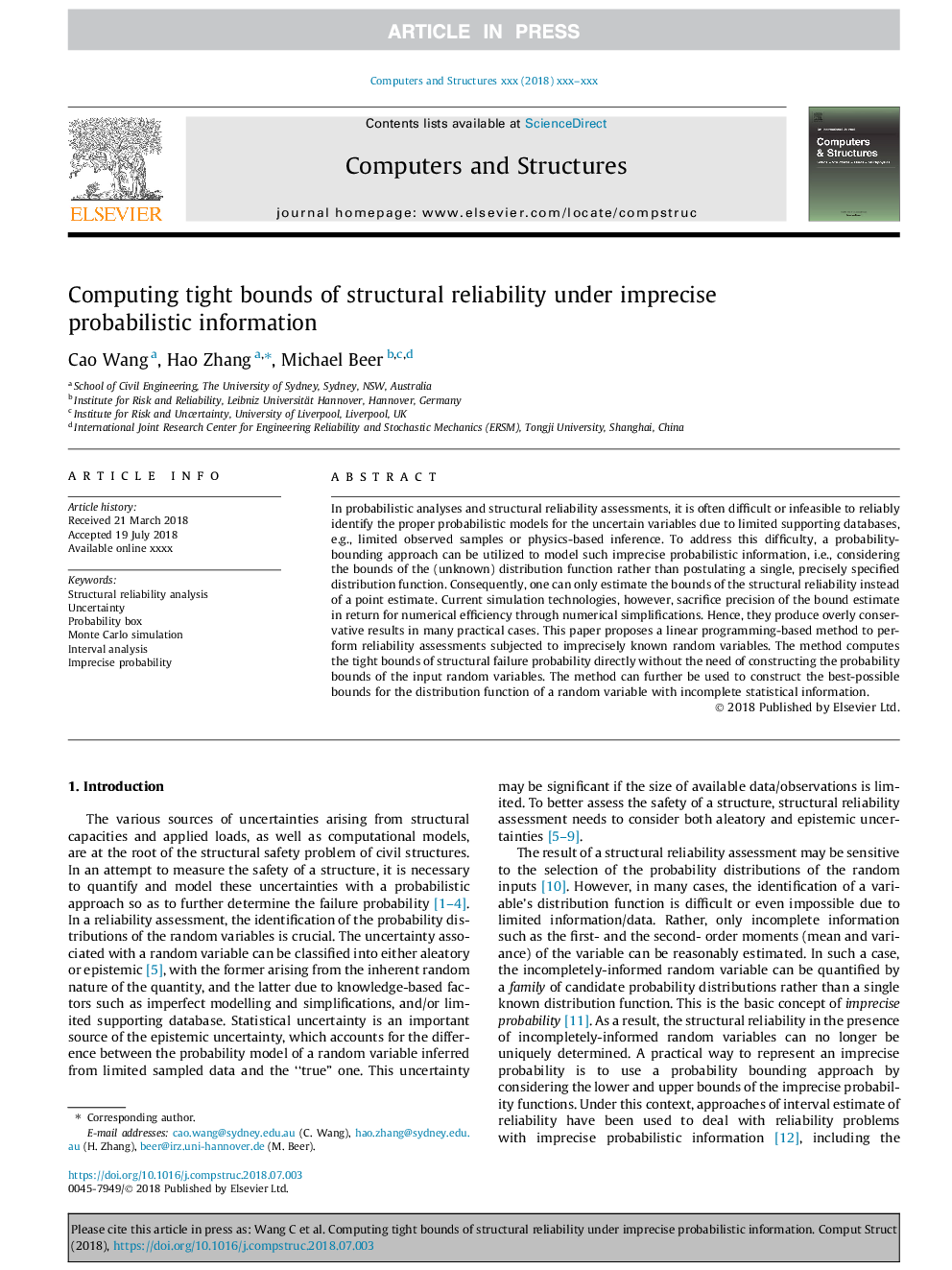| Article ID | Journal | Published Year | Pages | File Type |
|---|---|---|---|---|
| 8965217 | Computers & Structures | 2018 | 13 Pages |
Abstract
In probabilistic analyses and structural reliability assessments, it is often difficult or infeasible to reliably identify the proper probabilistic models for the uncertain variables due to limited supporting databases, e.g., limited observed samples or physics-based inference. To address this difficulty, a probability-bounding approach can be utilized to model such imprecise probabilistic information, i.e., considering the bounds of the (unknown) distribution function rather than postulating a single, precisely specified distribution function. Consequently, one can only estimate the bounds of the structural reliability instead of a point estimate. Current simulation technologies, however, sacrifice precision of the bound estimate in return for numerical efficiency through numerical simplifications. Hence, they produce overly conservative results in many practical cases. This paper proposes a linear programming-based method to perform reliability assessments subjected to imprecisely known random variables. The method computes the tight bounds of structural failure probability directly without the need of constructing the probability bounds of the input random variables. The method can further be used to construct the best-possible bounds for the distribution function of a random variable with incomplete statistical information.
Keywords
Related Topics
Physical Sciences and Engineering
Computer Science
Computer Science Applications
Authors
Cao Wang, Hao Zhang, Michael Beer,
